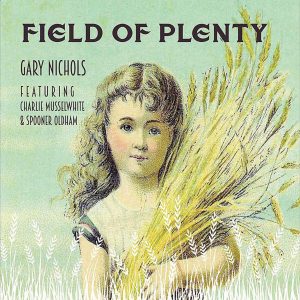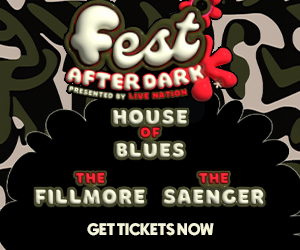 From the early–twentieth century illustration on the front that celebrates youth and bounty to the striking classic Dust Bowl photograph on the back that reveals the truth about our priorities, you might think of Field of Plenty as a good old-fashioned political folk album. But Gary Nichols is an established country artist, albeit one with deeper roots than most—and while his guitar probably would do a great job killing fascists, he spends most of his time on his first acoustic album essaying country blues filtered through a rock star swagger. These songs move like they’ve got a full electric band behind them, and that’s not a bad thing. Unfortunately, there’s not a lot of point to being that declamatory when you don’t have much to say: His heart’s definitely in the right place, but Nichols spends a little too much time venerating his gods lyrically, whether to convince us of his authenticity or just to make a statement of purpose.
From the early–twentieth century illustration on the front that celebrates youth and bounty to the striking classic Dust Bowl photograph on the back that reveals the truth about our priorities, you might think of Field of Plenty as a good old-fashioned political folk album. But Gary Nichols is an established country artist, albeit one with deeper roots than most—and while his guitar probably would do a great job killing fascists, he spends most of his time on his first acoustic album essaying country blues filtered through a rock star swagger. These songs move like they’ve got a full electric band behind them, and that’s not a bad thing. Unfortunately, there’s not a lot of point to being that declamatory when you don’t have much to say: His heart’s definitely in the right place, but Nichols spends a little too much time venerating his gods lyrically, whether to convince us of his authenticity or just to make a statement of purpose.
It’s great that “The Medicine Show” realizes the real value of Blind Willie McTell to modern society, or that Gary name-checks the Bakersfield sound in “Bakersfield Bound” or that he casually drops Merle Haggard’s lost classic album Same Train, A Different Time into his own Jimmie Rodgers tribute. But too often he’s losing himself in the music in all the wrong ways. “To Get Out of Pickin’ Cotton” is constructed from nothing but repurposed John Lee Hooker clichés, and “I Ain’t Comin’ Back” is a honky-tonk weeper that mentions Merle Haggard and San Quentin in the very first verse.
After a while it sounds less like a tribute then someone desperately looking for inspiration, but the strange thing is all the other pieces are already there: The pickin’ and singin’ are just fine, he does a great “Hobo’s Meditation” and “Down by the Riverside,” and when you’ve already got Charlie Musselwhite on harp and Spooner Oldham on piano, everything else should fall naturally into place. Gary Nichols shouldn’t be losing himself in his music, he should be finding himself in it. God knows we could use an advertisement for classic country—but where we could use him most are on some new classic songs.




